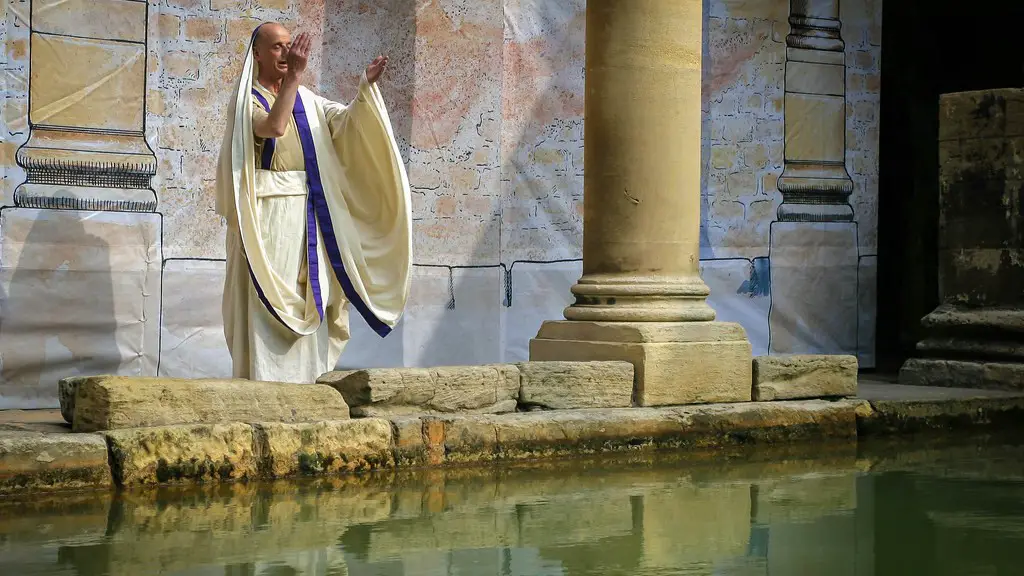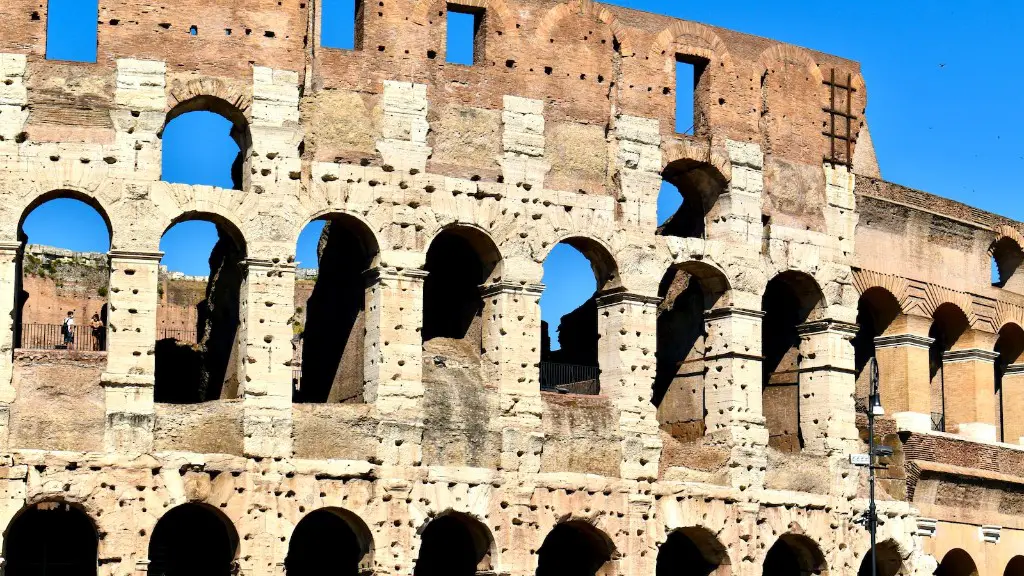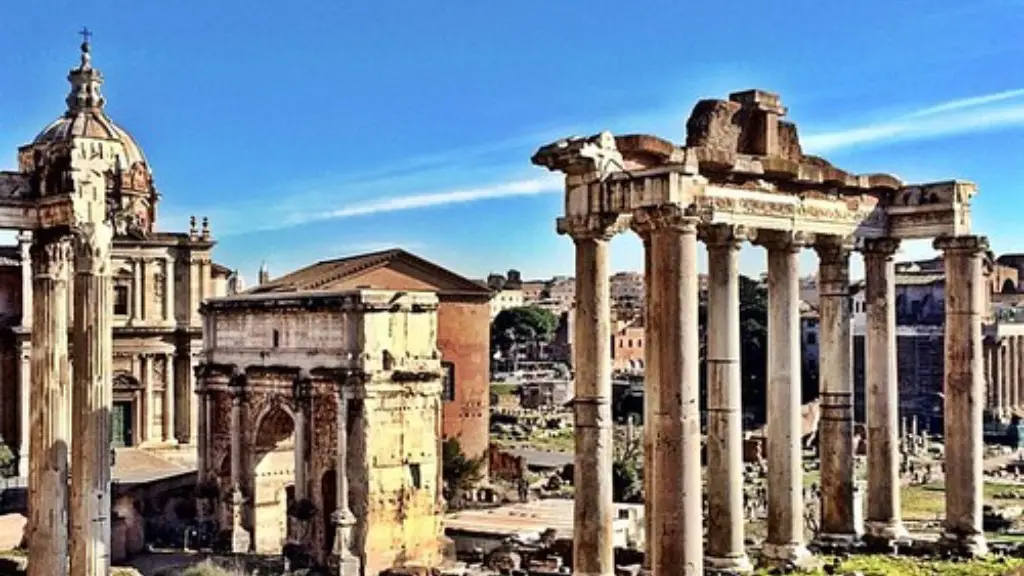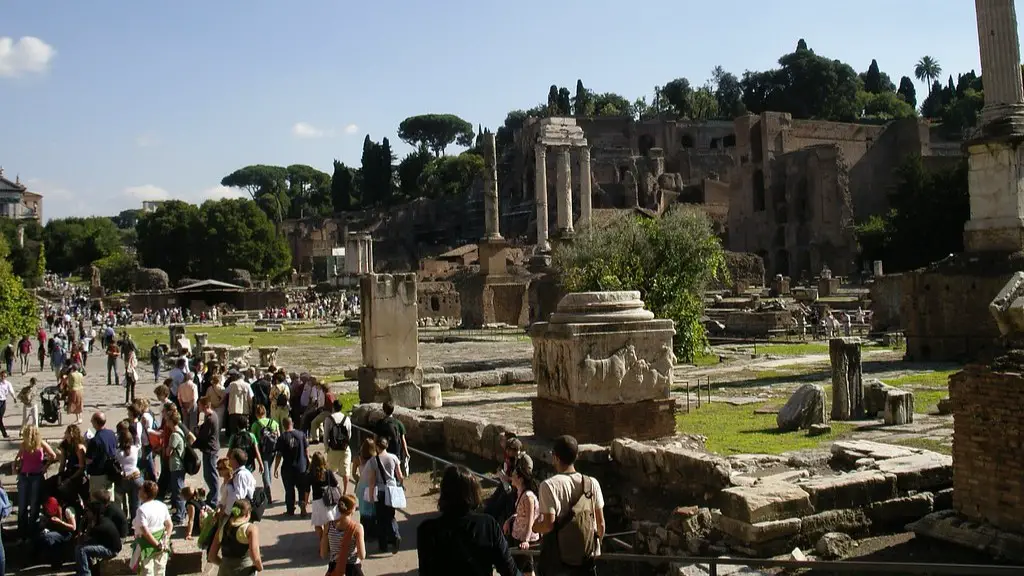The Citizen’s Role in Ancient Rome
Ancient Rome is widely regarded as one of the greatest civilizations in human history. This is due in part to its dynamic and complex government system that successfully balanced the interests of citizens from different walks of life. At the heart of this system was the active participation of its citizens who played a crucial role in ancient Roman governance.
Citizenship in ancient Rome was not the same as it is today. In ancient Rome, it was a privilege given to certain people and those people had certain rights. Only male citizens had the right to vote. They could also vote on laws and decide who should become the ruler of Rome. However, citizens’ rights were not absolute; some restrictions were imposed on their political power, such as the limitation of access to certain offices and voting rights.
Nevertheless, citizens had a significant role in the decision-making process of the Roman government. They could participate in legislative debates, regardless of their social status and influence. This was a crucial element of democracy in ancient Rome since it allowed citizens of all social strata to take part in the decision-making process and help shape the laws of the Roman state.
Citizens were also allowed to take part in local assemblies and magistracies. These were institutions of government in which citizens would deliberated, develop political solutions for their society, and enforce decisions. Magistrates were also elected by citizens, who could choose the ones they felt had the power and ability to best serve the needs of the people.
Moreover, certain citizens could serve in Roman military and is another way they contributed to their society. They were expected to defend Rome from any enemy and maintain its borders. This means they had to take responsibility for their actions, as they would be held accountable if they failed to do their duties as a Roman citizen. It was also important that citizens be loyal to the state and obey the laws of Rome without question.
Ancient Romans also had the right to oppose their government if they thought the laws were unjust. This was known as the “Appeal to the People” and it allowed citizens to voice their grievances and to try and influence the political decisions of the state administration. Citizens were also encouraged to participate in public debates and take their opinions directly to the Senate.
The Role of Slaves in Ancient Rome
While citizens were the ones who had an active role in the Roman government, there were also slaves in ancient Rome that played an important role in society. Slaves were mostly obtained either by conquest or through trade and were often used for labor and manual work. As such, they provided a vital source of labor and wealth to the ancient Roman economy.
Slaves were not allowed to take part in the political process and had no rights whatsoever. However, they could be freed by their owner, a process which was known as manumission. This was usually done when slaves served their owners faithfully or when their owners felt they had proven their worth.
Slaves could also acquire their own property and keep them even if they were freed. They were allowed to practice certain trades, such as medicine and to own slaves themselves. This provided a degree of freedom for slaves and eased the burden of their servitude.
Despite the limited rights available to them, slaves did play a vital role in the success of the ancient Roman state. They provided cheap labor for the upper classes of society and contributed to the overall wealth and stability of the empire.
The Role of Women in Ancient Rome
Ancient Rome also had a gender divide. Only males were granted full citizenship rights and had the ability to take part in public debates and political discourse. Women, on the other hand, had to remain in the shadows and were not allowed to participate in any decision-making processes.
However, women still had some degree of power and influence in the Roman society. They could pass on their property to their heirs, could gain control over the finances of their family, and could even own slaves. While these powers were limited compared to those of the male citizens, it showed that women were still an influential force in the ancient Roman world.
Aside from the legal powers that women held, they were also involved in the social and cultural life of ancient Rome. They could participate in religious ceremonies, held important jobs such as teachers and scribes, and had their own social networks that helped to shape the Roman society. Although they had limited rights, women still played an important role in the life of ancient Rome.
The Role of Foreigners in Ancient Rome
Foreigners, known as “barbarians” in ancient Rome, also played a role in the Roman government. These were people who lived outside the Roman state and had no rights as citizens. However, the Roman state adopted some of their customs and some foreigners were even granted citizenship, although this was rare.
Barbarians were often seen as a threat to the Roman Empire and were treated with suspicion. They were not allowed to engage in any political decision-making processes and could only provide support for the Roman state by way of military engagements or labor. Their presence was often used to gain an edge in conflicts and wars and to bolster the Roman military forces. In this way, foreigners provided a crucial contribution to the Roman government and the success of the state.
The Role of Rome’s Allies in Ancient Rome
The Roman Empire also relied upon its allies to maintain its power and influence. These allies provided Rome with additional resources, military support, and counsel when needed. This was especially important in wartime when Rome needed to have a reliable and powerful ally to depend upon in battle.
These allies also provided trade and economic benefits to the Roman state. They could trade with each other freely and shared economic and financial resources with Rome when necessary. They also helped to ensure a steady supply of raw materials, luxury goods, and other resources that Rome needed to maintain its prosperity and power. This was essential for Rome’s success as an Empire and it allowed Rome to gain an edge over its enemies.
The Role of the Roman Senate in Ancient Rome
The Roman Senate was the ruling institution of the Roman state. It was composed of a council of elected citizens and patricians, as well as representatives of the military and other powerful figures. The Senate was responsible for making decisions concerning the law, foreign policy, and other matters of state.
The Senate was also responsible for keeping the peace in the Roman state and ensuring that its citizens could live in justice and prosperity. This was done by passing laws that maintained order and prosperity and by providing public services and resources for the citizens of Rome.
The Senate was crucial to the success of the Roman government and its citizens. Its rule was absolute and only its members had the power to make decisions about the state and its citizens. The Senate was seen as a vital part of the Roman government and its members had a large influence over how the Roman state functioned.
The Legacy of Ancient Rome
Ancient Rome was a great civilization that lasted for centuries and still has an impact on societies around the world. Its government system, which was heavily dependent on the active participation of citizens, was essential to its success. Citizens, women, slaves, foreigners, and Rome’s allies all played a role in the Roman state, and their contributions were essential to the success and prosperity of ancient Rome.
This legacy is something to be appreciated and celebrated, as it shows the incredible power a society can have when its citizens are actively engaged and involved in the decision-making process. Ancient Rome serves as a reminder to all societies that true power and prosperity come from an informed and active citizenry.





